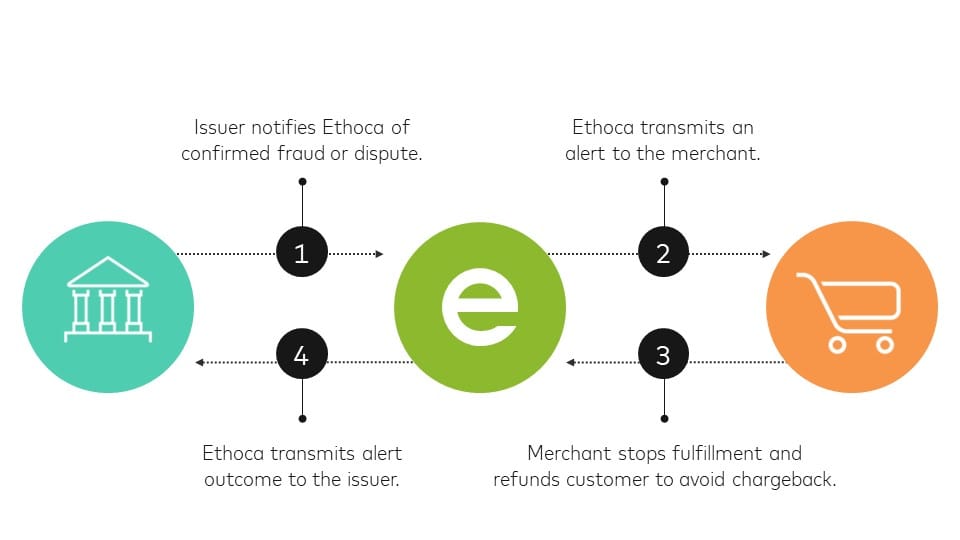
SuperPay helps alternative medicine professionals like yourself get paid as quickly as possible. Choose our platform to power your payments & billing.
In today's interconnected world, the opportunity to expand your alternative medicine business abroad has never been more accessible. As the demand for holistic healthcare continues to grow globally, tapping into international markets can open up a world of possibilities for your business. However, expanding internationally requires careful planning, strategic partnerships, and a deep understanding of the global market landscape.
In this blog post, we will explore the essential steps and considerations involved in expanding an alternative medicine business abroad. From understanding the global market for alternative medicine to creating an effective business plan, we will delve into the key aspects that will set you up for success.
First and foremost, we will discuss the importance of understanding the global market for alternative medicine. Every country has its own unique healthcare landscape, regulations, and consumer preferences. By conducting thorough market research, you can identify target markets that align with your business goals and offerings. We will also delve into the legal and regulatory requirements you need to navigate when entering new markets, ensuring compliance and avoiding potential pitfalls.
Once you have identified your target markets and understand the legal landscape, creating an effective business plan becomes crucial. We will guide you through the process of developing a comprehensive plan that outlines your expansion strategy, financial projections, and growth objectives. Financial planning and budgeting are particularly important as they will help you allocate resources effectively and minimize financial risks.
Establishing international partnerships and collaborations is another key consideration when expanding your alternative medicine business abroad. We will discuss the steps involved in finding suitable partners, negotiating agreements, and managing collaborative efforts. These partnerships can provide valuable opportunities for knowledge exchange, market access, and expanding your network globally.
Marketing and promoting your alternative medicine business internationally requires a tailored approach. We will explore the importance of identifying your unique selling proposition and creating a global marketing strategy that resonates with your target audience. Implementing effective marketing campaigns will help you build brand awareness, attract new customers, and establish a strong presence in international markets.
Lastly, we will address the challenges and risks that come with international expansion. Cultural differences, political risks, financial risks, and maintaining quality and standards are all factors that need to be carefully managed. We will provide insights and strategies for mitigating these risks to ensure a smooth and successful expansion.
Expanding an alternative medicine business abroad can be a rewarding endeavor, both personally and professionally. By following the steps and considerations outlined in this blog post, you can navigate the complexities of the global market and position your business for sustainable growth. So let's dive in and explore the exciting opportunities that lie ahead!
Understanding the Global Market for Alternative Medicine
Understanding the Global Market for Alternative Medicine
The global market for alternative medicine is experiencing significant growth and presents immense opportunities for businesses in the industry. To successfully expand your alternative medicine business abroad, it is crucial to have a comprehensive understanding of the global market landscape. In this section, we will explore key aspects that will help you navigate the market and make informed decisions.
Researching Market Trends: Start by conducting thorough research on the current trends and market dynamics in the alternative medicine industry. Look for reports, studies, and industry publications that provide insights into consumer preferences, emerging therapies, and market growth projections. Stay updated with the latest developments to identify potential gaps or opportunities in the market.
Identifying Target Markets: Different countries have varying levels of acceptance and demand for alternative medicine. Analyze potential target markets based on factors such as population demographics, healthcare infrastructure, cultural attitudes towards holistic healthcare, and existing competition. Consider regions with a growing interest in alternative medicine, where your offerings can fill a market need.
Understanding Local Regulations: Each country has its own legal and regulatory framework governing the practice of alternative medicine. Familiarize yourself with the regulations and requirements for licensing, certifications, and permits to ensure compliance. Determine if there are any restrictions on specific therapies or ingredients used in your practice and adapt your offerings accordingly.
Assessing Market Size and Growth Potential: Evaluate the market size and growth potential of your target countries. Look for data on the number of alternative medicine practitioners, market revenue, and consumer spending patterns. This information will help you gauge the market's potential and make informed decisions about resource allocation and expansion strategies.
Cultural Considerations: Cultural attitudes towards healthcare and alternative medicine can vary significantly from one country to another. Take into account cultural beliefs, traditions, and practices related to health and wellness. Adapt your marketing messages and treatment approaches to align with local customs and preferences. Building trust and understanding with the local community is essential for successful market penetration.
Researching Local Competition: Identify existing competitors in your target markets and analyze their strengths, weaknesses, and market positioning. Understand their pricing strategies, service offerings, and marketing tactics. This information will help you differentiate your business and develop a unique value proposition that sets you apart from the competition.
Assessing Market Entry Barriers: Evaluate the potential barriers to entry in each target market. These can include language barriers, cultural differences, regulatory hurdles, and established competitors. Develop strategies to overcome these barriers, such as partnering with local experts or leveraging existing networks. Understanding the challenges upfront will enable you to develop a more effective market entry plan.
By thoroughly understanding the global market for alternative medicine, you can identify the most promising opportunities for expansion and tailor your strategies to meet the needs of specific target markets. Conducting comprehensive research, analyzing market trends, and adapting to cultural nuances will position your business for success in the global arena.
Creating an Effective Business Plan
Creating an Effective Business Plan
Expanding an alternative medicine business abroad requires a well-crafted and comprehensive business plan. A business plan serves as a roadmap, outlining your goals, strategies, and financial projections. In this section, we will explore the key components and considerations involved in creating an effective business plan for international expansion.
Executive Summary: Begin your business plan with an executive summary that provides an overview of your business, its mission, and the purpose of the plan. Summarize your expansion goals, target markets, and competitive advantages. Keep it concise but impactful to grab the attention of potential investors or partners.
Company Overview: Provide a detailed description of your alternative medicine business, including its history, mission, and values. Highlight your unique selling proposition and core competencies that differentiate your business from competitors. Discuss your current market position and achievements to showcase your credibility and track record.
Vision and Expansion Goals: Clearly define your vision for international expansion. Outline your short-term and long-term goals, such as the number of new clinics or revenue targets. Discuss the rationale behind your expansion strategy and how it aligns with your overall business objectives.
Market Analysis: Conduct a comprehensive analysis of the target markets you identified in the previous section. Present data on market size, growth potential, customer demographics, and competitive landscape. Identify key trends and opportunities that support your decision to expand into these markets.
Competitive Analysis: Evaluate the strengths, weaknesses, opportunities, and threats posed by your competitors in the target markets. Identify their market share, service offerings, pricing strategies, and marketing tactics. Highlight how your business will differentiate itself and provide a competitive advantage.
Marketing and Sales Strategy: Outline your marketing and sales approach for international expansion. Describe how you will position your brand, create awareness, and attract customers. Discuss your pricing strategy, promotional activities, and channels of distribution. Include a comprehensive marketing budget to support your strategies.
Operational Plan: Provide details on how you will operate your alternative medicine business abroad. Discuss the organizational structure, staffing requirements, and necessary licenses or certifications. Outline the logistical aspects, such as clinic location selection, equipment procurement, and supply chain management.
Financial Projections: Develop detailed financial projections for your international expansion. Include revenue forecasts, projected expenses, and profit margins. Consider factors such as startup costs, marketing expenses, staffing, and ongoing operational expenses. Provide a timeline for achieving profitability and a plan for managing cash flow.
Risk Assessment and Mitigation: Identify potential risks and challenges associated with international expansion. Evaluate factors such as regulatory changes, currency fluctuations, political instability, and cultural barriers. Develop strategies to mitigate these risks and ensure business continuity.
Implementation Plan: Create a detailed implementation plan that outlines the steps required to execute your international expansion. Set clear timelines, assign responsibilities, and establish key performance indicators to monitor progress. Include contingency plans to address unforeseen challenges that may arise during the expansion process.
By creating an effective business plan, you will have a clear roadmap for expanding your alternative medicine business abroad. It will serve as a guide for decision-making, attracting investors, and securing partnerships. Regularly review and update your business plan as you progress to ensure alignment with your evolving goals and market dynamics.

Establishing International Partnerships and Collaborations
Establishing International Partnerships and Collaborations
Expanding an alternative medicine business abroad often requires the establishment of strategic partnerships and collaborations. These partnerships can provide valuable opportunities for knowledge exchange, market access, and shared resources. In this section, we will explore the key steps and considerations involved in establishing successful international partnerships.
Finding Suitable Partners: Begin by conducting thorough research to identify potential partners in your target markets. Look for organizations, practitioners, or businesses that align with your values, mission, and target audience. Consider factors such as their expertise, reputation, geographic reach, and complementary offerings. Attend industry conferences, trade shows, and networking events to connect with potential partners.
Assessing Compatibility: Evaluate the compatibility and synergy between your business and potential partners. Consider factors such as shared values, vision, and business goals. Assess their willingness to collaborate and their commitment to quality and ethical standards. Look for partners who can bring unique expertise, resources, or market access that can enhance your international expansion efforts.
Negotiating Agreements: Once you have identified potential partners, the next step is to negotiate mutually beneficial agreements. Clearly define the terms and expectations of the partnership, including areas of collaboration, responsibilities, and financial arrangements. Discuss intellectual property rights, confidentiality, and dispute resolution mechanisms. Seek legal advice to ensure that the agreements comply with local laws and regulations.
Managing Collaborative Efforts: Effective management of collaborative efforts is crucial for the success of international partnerships. Establish clear lines of communication and decision-making processes. Foster a culture of transparency, trust, and open dialogue with your partners. Regularly review and evaluate the progress of collaborative projects, and make necessary adjustments to ensure alignment with your business objectives.
Sharing Resources and Expertise: Collaborative partnerships often involve sharing resources and expertise. Explore opportunities for joint marketing initiatives, knowledge exchange programs, or research collaborations. Pooling resources can help reduce costs and risks associated with international expansion. Establish mechanisms for sharing best practices, training programs, and quality assurance protocols to ensure consistency in service delivery.
Building Relationships: Building strong relationships with your international partners is essential for long-term success. Invest time and effort in building rapport and trust through regular communication, site visits, and face-to-face meetings. Respect cultural differences and adapt your communication style accordingly. Foster a collaborative and supportive environment that encourages learning and growth for both parties.
Continuous Evaluation and Improvement: Regularly evaluate the performance and impact of your international partnerships. Assess the effectiveness of collaborative projects, the value generated, and the achievement of mutually agreed-upon goals. Seek feedback from your partners and make necessary improvements to enhance the partnership's outcomes and ensure its long-term sustainability.
Establishing international partnerships and collaborations can significantly enhance your alternative medicine business's expansion efforts. By finding suitable partners, negotiating agreements, and effectively managing collaborative efforts, you can leverage shared resources, expertise, and market access to drive growth and success in new markets. Foster strong relationships, embrace a collaborative mindset, and continuously evaluate and improve your partnerships for optimal results.
Marketing and Promoting Your Alternative Medicine Business Internationally
Marketing and Promoting Your Alternative Medicine Business Internationally
Expanding your alternative medicine business abroad requires a strategic approach to marketing and promotion. To effectively reach and engage your target audience in new markets, you need to develop a comprehensive global marketing strategy. In this section, we will explore key considerations and strategies for marketing and promoting your alternative medicine business internationally.
Identifying Your Unique Selling Proposition: Start by clearly defining your unique selling proposition (USP). What sets your alternative medicine business apart from competitors? Identify the unique benefits, therapies, or approaches that make your business stand out. Understanding and articulating your USP will form the foundation of your international marketing efforts.
Conducting Market Research: Before launching your marketing campaigns, conduct thorough market research in each target market. Understand the local consumer preferences, healthcare trends, and cultural nuances related to alternative medicine. Identify the specific needs and desires of your target audience to tailor your messaging and offerings accordingly.
Adapting Your Branding and Messaging: Adapt your branding and messaging to resonate with the cultural and linguistic preferences of your target markets. Consider local languages, symbols, and imagery that will effectively communicate your brand values and offerings. Ensure that your messaging is clear, concise, and culturally sensitive.
Developing a Global Marketing Strategy: Develop a comprehensive global marketing strategy that outlines your objectives, target audience, key messaging, and marketing channels. Consider a mix of online and offline marketing tactics, including digital advertising, social media, content marketing, PR campaigns, and traditional advertising. Tailor your strategy to each target market while maintaining a consistent brand identity across all channels.
Localizing Your Online Presence: Establish a strong online presence in each target market. Create localized websites or landing pages that are optimized for local search engines. Translate your website content and adapt it to the cultural preferences and SEO keywords of each market. Leverage social media platforms popular in the target markets to engage with your audience and share relevant content.
Implementing Marketing Campaigns: Execute targeted marketing campaigns that align with your global marketing strategy. Develop compelling content that educates and informs your audience about the benefits of alternative medicine. Use storytelling and testimonials to build trust and credibility. Leverage influencers, industry experts, and local partnerships to expand your reach and enhance your brand visibility.
Monitoring and Analyzing Results: Continuously monitor and analyze the results of your marketing campaigns. Track key performance indicators such as website traffic, engagement metrics, lead generation, and conversion rates. Use analytics tools to gain insights into user behavior and preferences. Adjust your marketing strategies based on the data to optimize results and maximize return on investment.
Engaging with Local Communities: Foster relationships with local communities by actively participating in local events, workshops, and health fairs. Offer educational seminars or workshops to raise awareness about alternative medicine. Collaborate with local healthcare practitioners and organizations to build credibility and trust within the community.
Building Customer Relationships: Focus on building strong relationships with your international customers. Provide personalized and attentive customer service that exceeds their expectations. Implement loyalty programs, referral incentives, or customer feedback mechanisms to foster customer loyalty and advocacy.
Adhering to Ethical Marketing Practices: Ensure that your marketing efforts adhere to ethical standards and regulations in each target market. Respect privacy laws, obtain necessary permissions for data collection, and be transparent in your marketing communications. Build trust by promoting evidence-based practices and avoiding exaggerated claims.
By developing a comprehensive global marketing strategy, adapting your branding and messaging to local markets, and implementing targeted campaigns, you can effectively promote your alternative medicine business internationally. Regularly analyze the results, engage with local communities, and build customer relationships to drive long-term success in new markets.
Addressing Challenges and Risks in International Expansion
Addressing Challenges and Risks in International Expansion
Expanding an alternative medicine business abroad comes with its fair share of challenges and risks. It is essential to anticipate and address these potential obstacles to ensure a successful international expansion. In this section, we will explore the key challenges and risks that may arise and provide strategies for mitigating them.
Cultural Differences and Misunderstandings: Cultural differences can significantly impact how your alternative medicine business is perceived and received in a new market. Language barriers, different healthcare practices, and varying beliefs about alternative medicine can lead to misunderstandings. Take the time to understand the local culture, customs, and communication styles. Adapt your approach, messaging, and treatment methods to align with cultural preferences. Building strong relationships and trust with local communities can help bridge these gaps.
Political Risks: Political instability, changes in government regulations, and geopolitical tensions can pose risks to your international expansion plans. Stay informed about the political climate of your target markets and assess potential risks. Diversify your market presence across multiple countries to minimize the impact of political instability in one specific location. Develop contingency plans to mitigate disruptions caused by political events.
Financial Risks: Expanding abroad requires careful financial planning and risk management. Currency fluctuations, exchange rate risks, and unexpected expenses can impact your financial stability. Conduct thorough financial analysis and projections to understand the potential costs and revenue streams in each target market. Consider working with financial experts or advisors who have experience in international business to mitigate financial risks.
Maintaining Quality and Standards: Ensuring consistent quality and adhering to regulatory standards in different countries can be challenging. Research and understand the local regulations, licensing requirements, and quality control measures specific to each target market. Train your staff on the specific standards and protocols to maintain consistency in service delivery. Regularly audit and monitor your operations to ensure compliance with local regulations and quality assurance.
Intellectual Property Protection: Protecting your intellectual property rights, including trademarks, patents, and proprietary knowledge, is crucial when expanding internationally. Research the intellectual property laws and regulations in each target market and take appropriate steps to safeguard your intellectual property. Work with legal experts to register your trademarks and patents to prevent infringement and unauthorized use.
Supply Chain Management: Managing the supply chain in international expansion can be complex. Consider logistics, transportation, and customs regulations when sourcing and delivering products. Develop relationships with reliable suppliers and partners who can ensure the timely and efficient delivery of goods and services. Implement robust inventory management systems to avoid stockouts or excess inventory.
Cultural Competence and Staffing: Building a culturally competent team is vital for successful expansion abroad. Hire local talent who understand the target market's culture, language, and healthcare practices. Provide training and ongoing support to your staff to enhance their cultural competence and ensure effective communication with local patients and partners.
Compliance with Legal and Regulatory Requirements: Complying with the legal and regulatory requirements of each target market is critical for a smooth expansion. Familiarize yourself with the local laws governing alternative medicine, licensing, and certifications. Seek legal counsel to ensure your business operations and marketing activities align with the legal framework of each country.
By proactively addressing and mitigating the challenges and risks associated with international expansion, you can position your alternative medicine business for success. Conduct thorough research, adapt to cultural differences, and develop contingency plans to navigate political and financial risks. Prioritize quality and compliance, protect your intellectual property, and build a culturally competent team to ensure a smooth and sustainable expansion abroad.
Final Assessment
Expanding an alternative medicine business abroad requires a strategic approach that considers cultural nuances, regulatory frameworks, and market dynamics. This blog delves into the key steps and insights to help alternative medicine businesses navigate international expansion effectively, from market research to compliance with local regulations. It equips readers with a comprehensive guide on how to successfully take their alternative medicine services to a global audience while ensuring sustainable growth.


